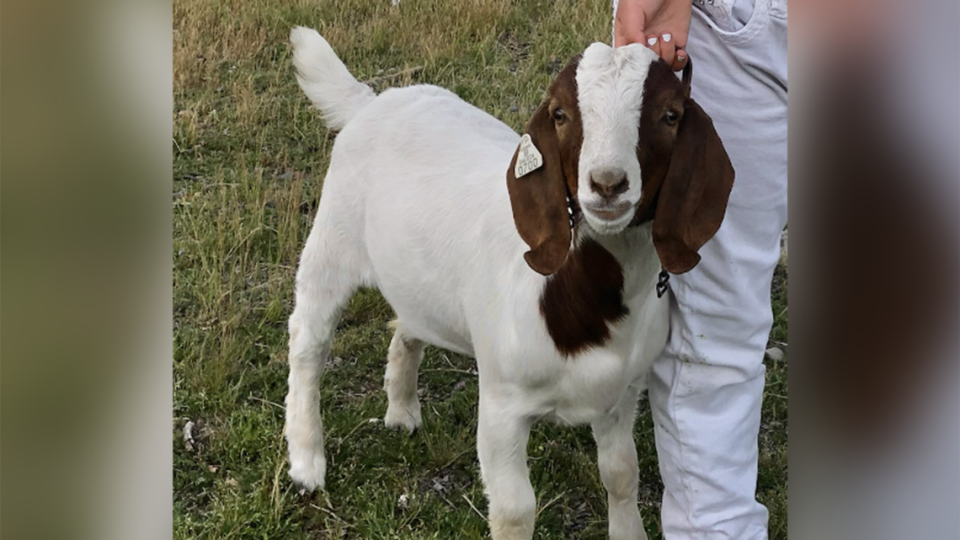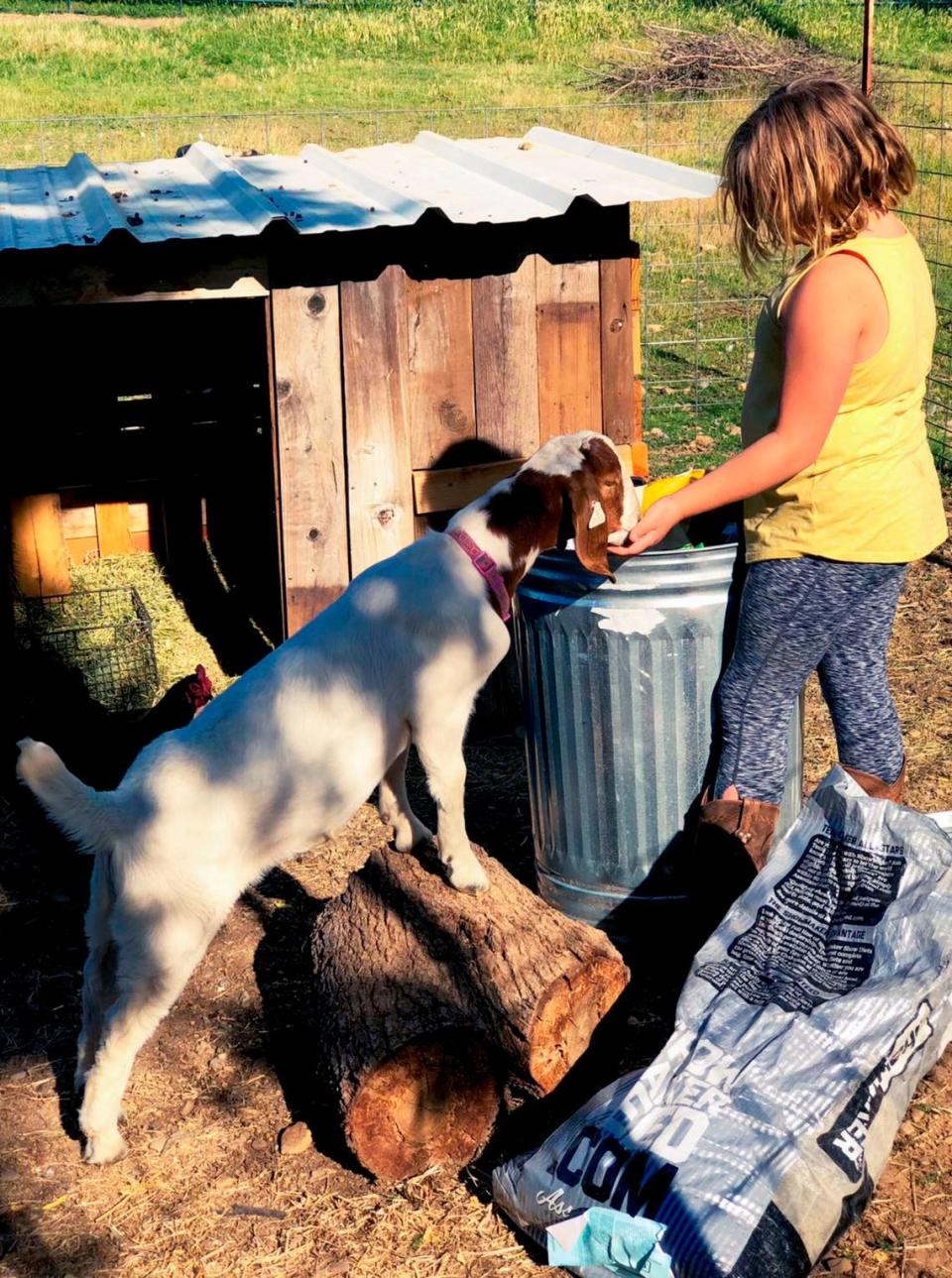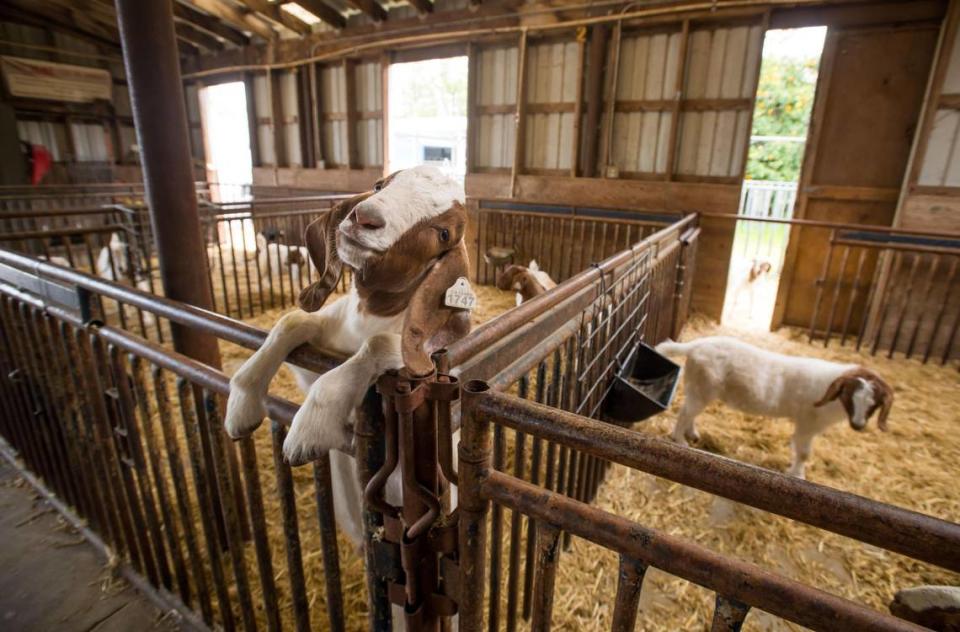What happened to Cedar the goat? 5 key things about contentious California slaughter
The saga over the slaughter of Cedar the goat continues to unfold and now both parties involved have filed lawsuits over the family’s decision to take the goat and fair officials’ actions to locate and slaughter it following an auction at the Shasta District Fair last year.
Cedar, then a 7-month-old white Boer goat, was purchased in April 2022 by Jessica Long for her 9-year-old daughter. The family registered the bleat in the Junior Livestock Auction at the Shasta District Fair. However, as the auction date approached Long’s daughter became more attached to the goat, resulting in the family backing out of the sale afterward.
Backing out of the sale has since created a spectacle that’s put into question the ethics of fair officials and how they administer programs like 4-H and Future Farmers of America at such exhibitions.
Here’s a look at the timeline of events in the wake of Cedar’s slaughter.
1. Shasta County girl backs out of goat auction
Before Cedar could be killed, the girl “exercised her statutory rights” as a minor to reject any contract she may have had with the fair, The Bee reported in September. Long took Cedar from the fair and told fair officials “in no uncertain terms” that she would pay for any losses from the decision to spare Cedar.
Cedar was sold on June 25 to a representative of state Sen. Brian Dahle for $902, with $63.14 going to the fair and $838.86 meant to go to Cedar’s owner.
The CEO of the Shasta District Fair, B.J. Macfarlane, called and threatened Long with a grand theft charge if the goat was not returned. Long offered to cover any losses that resulted from her taking the goat from the auction.
2. Search warrant, 200-mile trip to confiscate Cedar
The goat was taken to a Sonoma County rescue farm after being taken from the auction, which triggered a search for the animal by fair officials and, ultimately, law enforcement.
A 15-page search warrant and affidavit were issued for Shasta County sheriff’s officials to find Cedar.
Cedar was seized on July 8 more than 200 miles from Redding at the Bleating Hearts Farm and Sanctuary by two Shasta County Sheriff’s Office deputies.

3. Outpouring of support over slaughter
Tiana Peet heard about the family’s goat story. She was touched by what happened and offered to buy the girl a new goat or dog.
“I said, ‘What can I do with this anger?’ I wanted to show the family that there are decent people out there,” said Peet, 30, of Arcata told The Sacramento Bee in April.
Ryan Gordon, a co-founder of the nonprofit law firm Advancing Law for Animals which advocates for animal welfare, said that the dispute is not an isolated one, with young people calling for help keeping their animals from being killed for meat.
“The case is more important than Cedar,” Gordon told The Bee in September. “Every year, the firm I work at gets calls from kids that want help, that are in these 4-H programs and they want out and are told they can’t.”
4. California AG joins fight in federal court
Almost a year and a half later, the dispute over Cedar still continues. Long and California Attorney General Rob Bonta’s office are now suing each other.
In filings in Sacramento federal court Tuesday, Bonta’s office asked for the dismissal of a lawsuit over the seizure of Cedar the goat and said the federal court does not have jurisdiction over the matter.

And Deputy Attorney General John Bridges argued in a counterclaim that Long should pay for the defense of the officials she is suing because the mother signed an online contract when Cedar was entered into the fair auction.
Under that contract, Long agreed to “defend, indemnify, and hold harmless the fair, the county, and the state of California” for any damage or injury, the court filing says.
“The fair management shall not be responsible,” the contract stated.
5. Education and emotion for students
The battle over Cedar — who was ultimately slaughtered after being taken by fair officials, though it’s not clear when it was killed or where its meat wound up — spilled out into the broader themes of stewardship by children learning the livestock trade and the emotional bonds between students and their auctioned animals.
“There are tears, but the tears are short-lived,” said Mike Albiani, an adviser for Elk Grove’s FFA program following news of the legal battle. “We talk about that all through the process. It starts early at the parent meetings. As long as you reinforce that this is the purpose of the animal — if you reinforce that, and your peers give you support, it’s OK.”

The California Association of Future Farmers of America has been around since 1928, according to its site.
The program believes “raising livestock teaches young people to be financially responsible and work hard for what they will eventually earn, the quality of care along the way stems directly from the heart.”
“We’ll help work with a student in advance but … we’re going to make it very clear at the fair, if you don’t want your animal to go to process to the processor, you have to pull it out of the sale, you know, don’t sell it,” he added.
What do you want to know about life in Sacramento? Ask our service journalism team your top-of-mind questions in the module below or email servicejournalists@sacbee.com.

